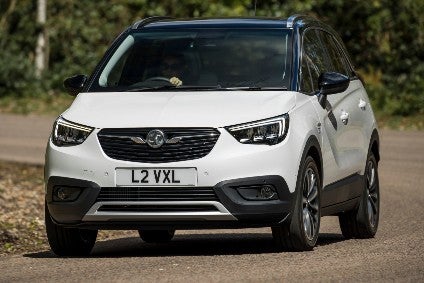The big question this week was what would PSA do with its newly acquired Opel/Vauxhall unit? Came 9 November, came the answer: a business plan that avoids plant closures and aims to put the company on a path to profitability by 2020. No plant closures are planned (for now) and the emphasis is on efficiency gains to lower breakeven. Groupe PSA chief Carlos Tavares described the situation for loss-making Opel-Vauxhall as ‘dramatic’ and said it faces headwinds in Europe as it strives to become profitable. However, he said there is a significant opportunity to rescue the company, building on the experience of the turnaround at PSA. “What has been done in the last 50 years did not work,” he said. “That is a fact.”
Tavares stressed the need for Opel-Vauxhall to lift its performance from within. “There is no intention to micro-manage Opel-Vauxhall,” he said. “It is in the hands of the CEO and managing board. Management must manage.” He also said that “people are not the problem, people are the solution.” So, for now at least, workers at the sole remaining Vauxhall car (Astra) plant at Ellesmere Port in England, and Opel factory workers, can breathe a little easier but for how long?
With the switch from GM to PSA platforms now scheduled to be completed by 2024 (leading to speculation in Australia as to where the next Holden Commodore will come from after the shortest single generation production life for the Opel built one just launching now), it was time for us to consider future product plans for the Opel/Vauxhall models and their new PSA siblings.
A recent trip to Korea gave us a chance to talk future fuels with Kia which remains convinced hydrogen is key. In November 2015, the automaker stated it would launch a fuel cell vehicle. The carmaker is targeting a 2020 launch for mass production of an all-new hydrogen FCEV, featuring its next-gen hydrogen fuel stack technology. Kia says it is working alongside 300 partner companies to develop this technology for global markets. Production of the new Kia FCEV is aimed to be around 1,000 units per year, a figure expected to rise as demand for fuel cell vehicles increases.
While critics doubt whether hydrogen will be efficient or cost-effective for cars compared to other zero-emission, technologies, Sae-Hoon Kim, who is in charge of Kia’s fuel cell research, believes that the next generation of FCEVs will be cheaper, more durable and reliable. He told us the cost of FCEVs will tumble as production increases. “We can say that fuel cell technologies are technically ready for the market. There is a lot of potential for the cost of FCEVs to come down but production volumes is a very dominant factor.”
An intriguing recall in the US shows how difficult it is for automakers to test for every eventuality. For several years, there have been reports of some models bursting into flames when unattended, attracting media investigation. Turns out the suspected culprit is a positive crankcase valve heater (why it has to be heated I have no idea). Even more complicated, if you read the fine print, is that it’s age-related according to BMW and regulatory investigators. Happens in cars two to eight years old. How do you test for that when developing a new model? The other equally baffling issue is HVAC fan connectors in certain models. Those with tin coated pins corrode, build up resistance, heat up, melt plastic, start smouldering fires. Those that are silver coated don’t. Again, how would you test for that if the problem doesn’t show up until the cars are several years old?
While driverless cars are being pushed to the public as desirable, are they really? Many of us like driving cars, most of the time. Albert Biermann, head of Vehicle Test and High Performance Development for Hyundai and Kia Motors, told us there will always be a need for fun to drive cars.
Have a nice weekend.
Graeme Roberts, Deputy Editor, just-auto.com







